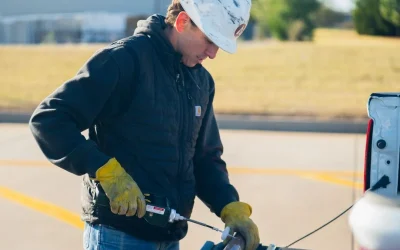In today’s rapidly evolving world, efficient waste management is more crucial than ever. One of the key components in this process is the use of roll-off bodies. These versatile containers play a vital role in collecting, transporting, and disposing of waste materials efficiently. Understanding their functionality and benefits can significantly enhance waste management practices, making them indispensable in various industries.
What are Roll Off Bodies?
Roll-off bodies are large, rectangular containers designed to be transported by specialized trucks. They are typically used in construction, demolition, and industrial sectors to handle substantial amounts of waste. These containers are characterized by their open tops and sturdy construction, making them ideal for holding bulky items and large volumes of debris.
Features and Benefits of Roll Off Bodies
Roll-off bodies offer numerous advantages that contribute to their widespread use in waste management:
• Versatility: These containers are available in various sizes and capacities, allowing them to accommodate different types of waste. Whether it’s construction debris, household waste, or recyclable materials, roll-off bodies can handle it all.
• Ease of Use: Designed for efficiency, roll-off bodies can be easily loaded and unloaded from trucks using a hydraulic system. This feature minimizes manual labor and speeds up the waste collection process.
• Durability: Constructed from robust materials, roll-off bodies are built to withstand harsh conditions and heavy loads. This durability ensures a longer lifespan, providing excellent value for money.
• Environmental Impact: By facilitating efficient waste collection and disposal, roll-off bodies help reduce the environmental footprint of waste management operations. They support recycling efforts by making it easier to transport recyclable materials to processing facilities.
Applications of Roll-Off Bodies
Roll-off bodies find applications across various sectors due to their adaptability and efficiency:
• Construction and Demolition: In these industries, roll-off bodies are used to collect and transport debris, such as concrete, wood, and metal, ensuring job sites remain clean and safe.
• Industrial Waste Management: Factories and manufacturing plants utilize roll-off bodies to manage large volumes of waste generated during production processes, ensuring compliance with environmental regulations.
• Municipal Waste Collection: Cities and towns use roll-off bodies for regular waste collection services, helping to maintain cleanliness and hygiene in urban areas.
For more information on Roll Off Bodies, visit the link to explore their diverse applications and benefits.
In conclusion, roll-off bodies are an integral part of modern waste management solutions. Their versatility, ease of use, and durability make them essential tools for efficiently handling and disposing of waste in various industries. By understanding their features and applications, businesses and municipalities can enhance their waste management practices, contributing to a cleaner and more sustainable environment. As the demand for effective waste solutions continues to grow, roll-off bodies will undoubtedly remain a key component in achieving efficient and environmentally friendly waste management.


